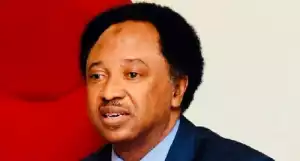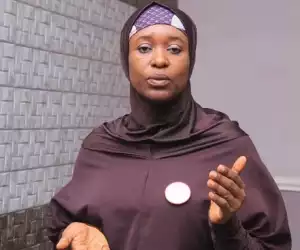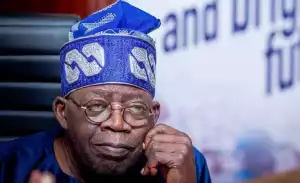Raise power consumption, not just generation, Agora Policy tells Tinubu

Raise power consumption, not just generation, Agora Policy tells Tinubu
The incoming administration of President-elect, Bola Tinubu, should focus on increasing the quantum of electricity that is consumed by Nigerians and not just increasing the megawatts being generated by power firms, Agora Policy stated in its latest electricity policy memo.
Agora Policy is an organisation that works to address observed gaps in policy and governance processes in Nigeria and is led by the immediate past Executive Secretary of Nigeria Extractive Industries Transparency Initiative, Waziri Adio.
In its policy brief, obtained by our correspondent in Abuja, the firm outlined some policy recommendations for the next administration, stressing that the Tinubu-led government must adopt a paradigm shift from installed capacity to electricity consumed.
In the document titled, “Addressing Nigeria’s Lingering Power Challenge”, the body said the government should stop thinking of installed generation capacity and start to think in terms of the amount of electricity delivered, or in layman’s terms, how much electricity was generated and consumed every hour by electricity consumers in Nigeria.
“This is an important paradigm shift with a positive impact on government, as having such a policy mindset changes the prioritisation and allocation of public and private resources to projects, interventions and initiatives across the electricity value chain that will increase the energy output, availability, reliability and quality of electricity delivered to end-users.
“By the way, electricity consumers are billed on a kilowatt-hour basis (consumption), not on a kilo-watt (capacity) basis,” it stated.
It stated that under the new paradigm, “We expect the incoming administration spokespersons to make statements such as, ‘We will increase the total electricity delivered to Nigerian households and businesses from xyz megawatt-hours by 100 per cent within x months’, rather than the usual statement saying, ‘We will increase generation capacity to 20,000 megawatts’.”
Agora Policy explained that increasing generation capacity to 20,000MW without most of the 20,000MW being consumed or a corresponding increase in electricity consumption was not only meaningless but also fiscally detrimental to the country.
“Increase in megawatt-hours delivered to electricity customers can be achieved if there is a seamless conversion and flow of energy from the natural gas fields to the generation stations, and from the generation stations to the high-voltage lines that transmit the energy to the national grid, and ultimately to medium-voltage and low-voltage lines that distribute the energy to end users,” it stated.
The organisation also recommended that the incoming government should continue with the implementation of the Buhari regime’s power sector programmes.
It, however, stated that “While we advocate for the continuation of the Buhari administration interventions, the incoming administration should also review and optimise some of these programmes and initiatives to ensure value-for-money.”
It said the Tinubu administration should also develop a new national electricity policy framework and amend the Electric Power Sector Reform Act passed by the National Assembly in 2004 and signed into law by former President Olusegun Obasanjo in 2005.
“Since its passage, the EPSRA (2005) has also remained unchanged, despite the urgent need for more reforms in the power sector,” the report stated while offering other recommendations.
The body observed that the reforms initiated by the President Olusegun Obasanjo administration, leading to the privatisation of the power sector in 2014, had yet to yield the desired results.
It stated according to the World Bank1, Nigeria had the largest energy access deficit in the world, as 85 million Nigerians, representing 43 per cent of the country’s population, lacked access to grid electricity.
“In comparison, 85 per cent of Ghana’s population has access to electricity, while 70 per cent of Senegal’s population has electricity access.
“The World Bank estimates that the lack of reliable power costs the Nigerian economy over $26.2bn (N10.1tn) which is equivalent to about two per cent of Nigeria’s Gross Domestic Product,” the document stated.
It further noted that the little progress made in the power sector since 1999 was neither at par with the country’s population growth nor adequate for the energy needs necessary to achieve its economic potential.
“For reference purposes, Nigeria’s energy consumption per capita at 140kWh is relatively low and is three times lower than the average for Sub-Saharan Africa,” it stated.
The policy think-tank further pointed out that the privatisation of the power sector in 2013 was intended to address Nigeria’s power sector infrastructure and operational challenges.
This, it said, would be by reducing the direct participation of government in electricity generation and distribution, creating an efficient, contract-driven electricity market, and putting the power sector in the hands of private investors, who would bring capital, operational capacity and efficiency into the industry.
“Unfortunately, privatisation of the power sector has not really taken government out of direct participation in the sector, nor has it improved operational efficiency in the sector,” the firm stated.







![Dange (2024) [Hindi]](https://www.memesng.com/r/storage.waploaded.com/images/232a140cbee267a67ee6d325c096b4f5.jpg?w=50&ulb=true&ssl=1)
![Infested (Vermines) (2024) [French]](https://www.memesng.com/r/storage.waploaded.com/images/3642d529b86ae80c737d17b985d37afd.jpg?w=50&ulb=true&ssl=1)
![The Package (2024) [Thai]](https://www.memesng.com/r/storage.waploaded.com/images/9999e66fa2e94fc304625d14a2fc4879.jpg?w=50&ulb=true&ssl=1)








![Goodbye Earth (2024) [Korean] (TV series)](https://www.memesng.com/r/storage.waploaded.com/images/d6909d7ab7dee12f075363e83ee593e8.jpg?w=50&ulb=true&ssl=1)
![The Asunta Case (2024) [Spanish] (TV series)](https://www.memesng.com/r/storage.waploaded.com/images/5b28adbe37ac7ac0e796e0fe240d4e54.jpg?w=50&ulb=true&ssl=1)

![Pantaxa Laiya (2023) [Tagalog] (TV series)](https://www.memesng.com/r/storage.waploaded.com/images/4c9b447a7ea76cbb004c2668e581c0ba.jpg?w=50&ulb=true&ssl=1)

{{comment.anon_name ?? comment.full_name}}
{{timeAgo(comment.date_added)}}
{{comment.body}}
{{subComment.anon_name ?? subComment.full_name}}
{{timeAgo(subComment.date_added)}}
{{subComment.body}}